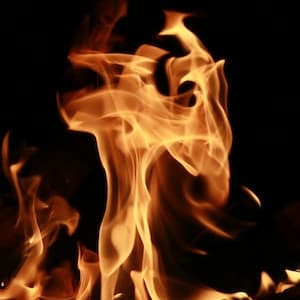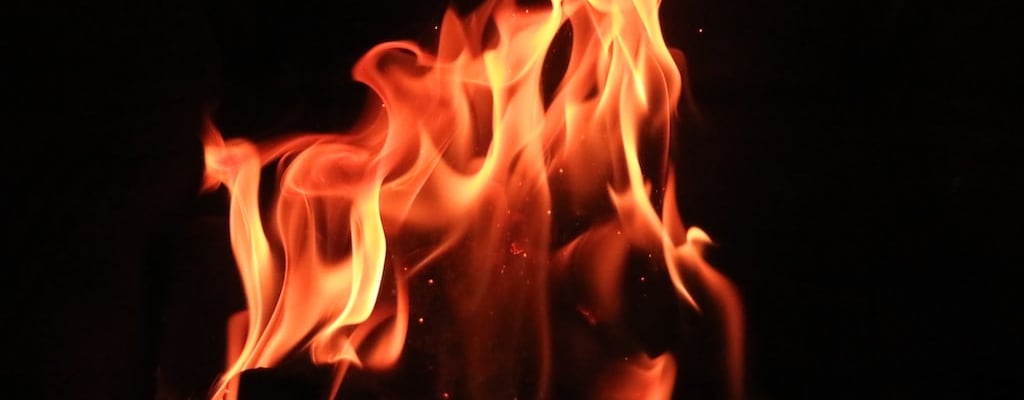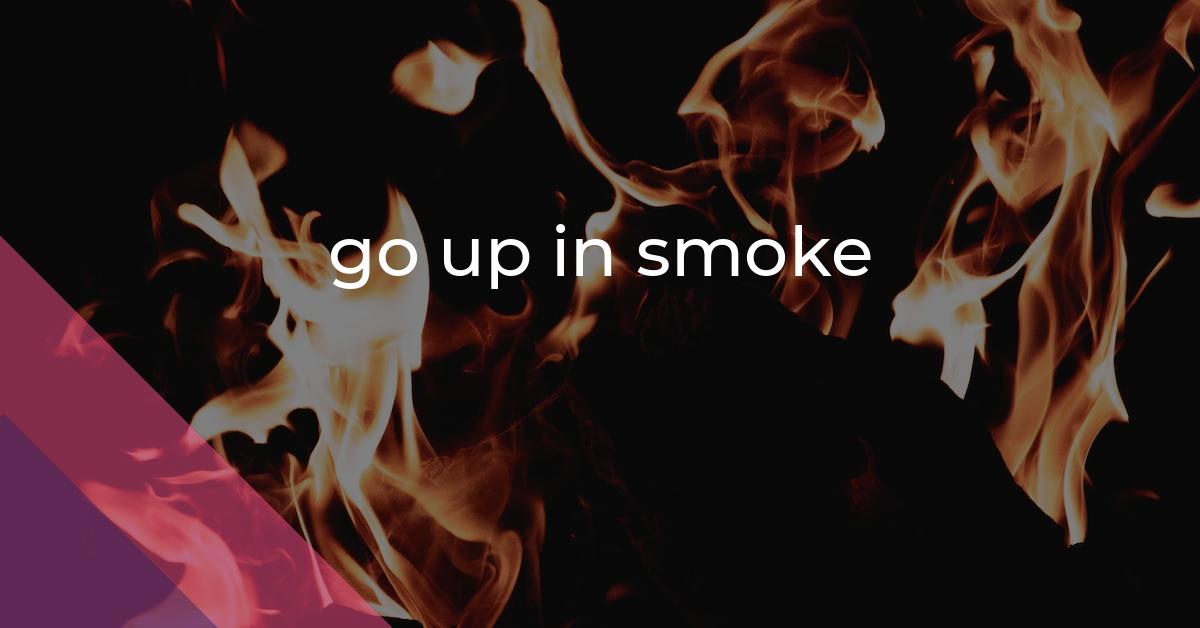go up in smoke: Idiom Meaning and Origin
What does ‘go up in smoke’ mean?
The idiom go up in smoke means to fail, be ruined, or be destroyed, often resulting in disappointment or loss.

Idiom Explorer
The idiom "wash out" means to fail or not be successful in an activity or endeavor. It can also refer to something that has been completely ruined or destroyed.
The idiom "holy smoke" is an exclamation used to show surprise or astonishment. It is often used in a humorous or lighthearted way to express disbelief or amazement at something unexpected.
The idiom "hit the roof" means to become very angry or furious about something.
"Hit the rocks" is an idiom that means to fail or come to a negative outcome. It typically refers to a situation or plan that goes wrong or falls apart.
The idiom "hit the fan" is used to describe a situation where something goes terribly wrong or chaotic, often as a result of a secret or scandal being revealed. It implies a sudden and explosive response to the situation.
The idiom "head south" means to go in the wrong direction or to experience a decline or failure.
The idiom "go up in flames" means to fail or be destroyed in a dramatic or disastrous way.
The idiom "go to the wall" means to face defeat or failure, often in a financial or competitive context.
The idiom "go to the dogs" means to deteriorate or decline, often used to describe a situation or place becoming worse in quality or standards.
Fiery Twist
The idiom "go up in flames" is closely related to the phrase "go up in smoke." Both expressions convey the idea that something has failed or come to an end in a dramatic and often destructive way. While "go up in smoke" emphasizes the disappointment and loss associated with failure, "go up in flames" adds an extra layer of intensity and drama. When something "goes up in flames," it suggests a sudden and fiery demise, much like when a fire ignites and consumes everything in its path.
Similarly, the idiom "go down in flames" is also related to the concept of failure. However, "go down in flames" specifically refers to a situation where someone or something fails spectacularly, often in a highly visible or embarrassing manner. The phrase paints a vivid picture of a crashing plane or a burning building, symbolizing the complete destruction and collapse of one's hopes or endeavors. "Go down in flames" carries a stronger connotation of public humiliation and a more dramatic fall from grace than "go up in smoke."
Another related idiom is "go down the drain." This phrase conveys a similar sense of disappointment and loss as "go up in smoke." When something "goes down the drain," it means that it has been wasted or ruined, much like when water drains away and disappears. This idiom is often used to describe the loss of resources, such as time, money, or effort, resulting in a futile or unsuccessful outcome. "Go down the drain" emphasizes the idea of irretrievable loss and the frustration of seeing one's efforts or investments go to waste.
The idiom "go up in smoke" captures the essence of failure and the dissipation or destruction of one's hopes and endeavors. Its origins can be traced back to the metaphorical association with fire, smoke, and literal practices like smoking. This idiomatic expression remains relevant in contemporary usage, encapsulating the sense of disappointment, unpredictability, and impermanence that can accompany the pursuit of our goals and dreams. Similarly, related idioms such as "go up in flames," "go down in flames," and "go down the drain" further highlight the intensity, drama, and irretrievable loss associated with failure and disappointment.
Example usage
Examples of how the idiom go up in smoke can be used in a sentence:
- Her plans to open a new restaurant went up in smoke when the building caught fire.
- The company's attempt to launch a new product went up in smoke when it failed to meet safety regulations.
- All their hard work to organize the event went up in smoke when a major sponsor pulled out at the last minute.
More "Fire" idioms



